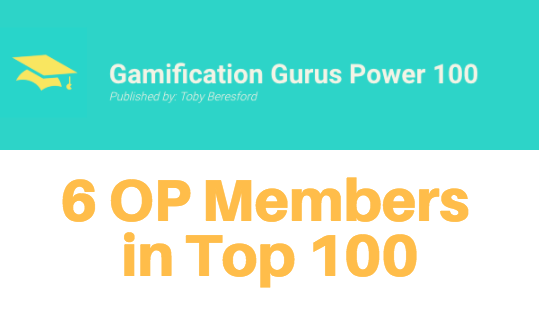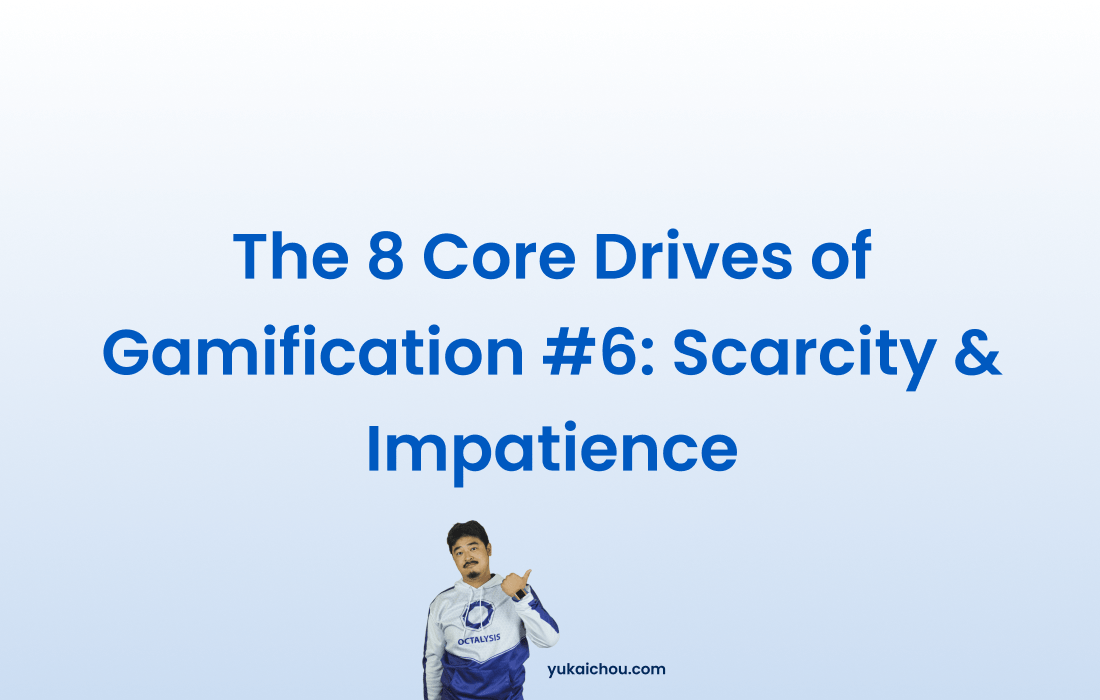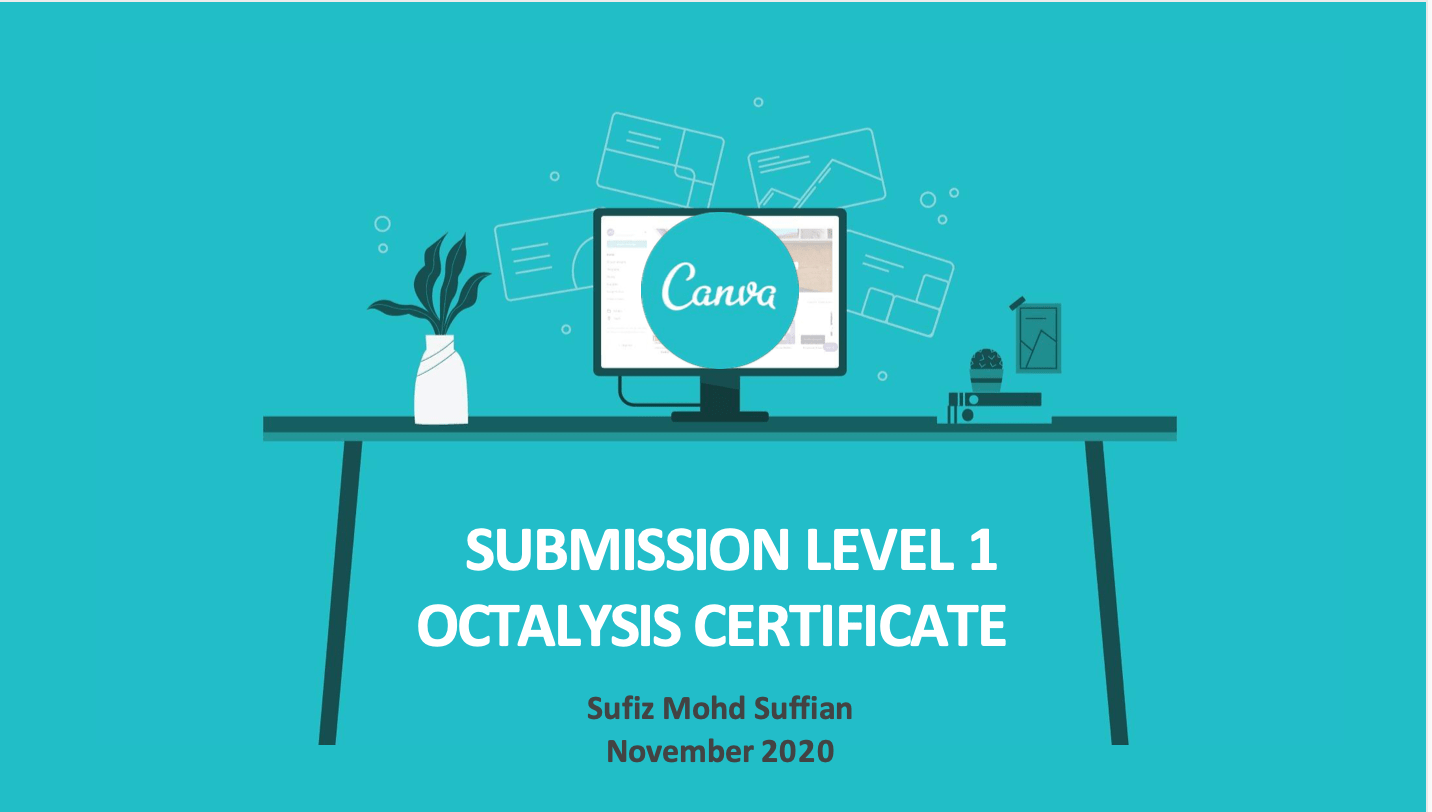 This article is written by Erik van Mechelen, based on the Octalysis gamification framework developed by Yu-kai Chou.
This article is written by Erik van Mechelen, based on the Octalysis gamification framework developed by Yu-kai Chou.
Choosing a college degree to learn gamification
Approaching university and trying to figure out what courses, or better yet, what degrees to spend your valuable time and money achieving? In this article, we’ll try to dig deeper into what areas in your university system may be a good place to visit and stay awhile.
Remember, degrees aren’t necessarily synonymous with skills. Throughout college, I did side projects to follow my curiosity and learn new skills.
As is becoming more and more the case (hasn’t it always been the case?), employers or heads of teams or startups want to know if you can do the job or not, and if you have the ability to continue growing and learning within the role.
My guess is this holds true for gamification roles, too.
Now, let’s quickly jump over a mental hurdle you may be experiencing. On the surface, gamification-specific jobs might seem rare. If you search major job sites you won’t see many job titles with gamification, but some descriptions are starting to include our favorite keyword.
Regardless of what you call it, we know human-focused design is part of many roles. In this article about roles gaining an edge from gamification knowledge, I discussed how product designers, UI/UX designers, and product managers use gamification to their advantage every day.
For this article, I’ll consider traditional university degrees that might best prepare you for roles where gamification knowledge gives you an edge.
Remember, getting a gamification job doesn’t require a degree, and your foot in the door may simply be the quality of your portfolio and hustle.
To degree or not to degree…
Let’s imagine you have no choice but to get a degree, and talk about why that degree could help you learn about and apply gamification throughout your investment of time and attention in the program.
To paint the picture, imagine the following:
If I was approaching Product Management, which does benefit from an understanding of gamification, then I tend to agree with Victor Manrique’s views about what degrees to attain (from Quora):
I’d recommend a business + tech bachelor with some personal work on design. This is why:
-
Business: You need to be excellent in strategy, vision, timings, stakeholder management, communication, priorities, etc. These are skills that you won’t master if you go full blown on a technical bachelor.
-
Tech: This is a no-brainer. You have to understand the people you are working with in order to get things done as a team. You don’t need to be a pro developer yourself, but don’t think you’ll be just fine with your business skills. I got a business+law double degree and had to catch up the hardcore way on my own later (and I still am), so don’t make this mistake too 😛
-
Design: UX/UI are a must, and you’ll most likely have to get this knowledge yourself via books/videos/courses, since doing a pure design bachelor will in most cases put you in a difficult position from the business or tech point of view.
But since we are tailoring this article for gamification and human-focused design, here’s my list:
Marketing
I think of marketer’s job as ensuring the story that is told about a product blends really well with what the product is and does, then finding customers who care (and should care) about how the product will improve their life.
While attaining the degree, I recommend actually working pro bono as a content marketer or email marketer or whatever feel of job fits you best. There are always companies looking for free work 🙂
Psychology
I’m talking less about the science of the brain and more about behavioral psychology.
Psychology will teach you the ins and outs of how thoughts translate into feelings and finally actions, and where the unexpected happens in those complex processes.
Psychology curriculums that I’ve seen tend to give you plenty of scientific theory and arm you with a literature of experiments and case studies on which to draw, from Skinner to the Stanford prison experiment.
Behavioral Economics
Although I received a Bachelor of Arts in Economics, I usually share with people the most exciting part was behavioral economics.
Behavioral economics, to me, arrived when the fundamental theories driving the entire field of Economics–namely that humans are rational actors–broke down.
The field was coined by Daniel Kahneman, and his book, “Thinking Fast, Thinking Slow” is a tremendous Head Start in dissecting the discipline.
Game theory, popularized by von Neumann, is also quite useful.
Business
Business degrees vary widely, but they usually include deal-making and negotiations courses in their curriculums. Creating non-zero sum games through cooperation sometimes feel better than winning a zero-sum game.
Or you could read Oren Klaff’s “Pitch Anything”.
Game Design
This is sort of the way Yu-kai went.
He played a ton of Starcraft and Diablo, built a couple startups, and followed up by building an incredibly useful gamification framework from his time in the trenches.
My path was “similar”. I terraformed Mars in Will Wright’s SimEarth, then tried my luck in designing a new type of poker for iOS. (Now I just write about gamification 🙂 )
Game Programming
One of the most recently active members in the Octalysis Explorers Facebook community is Jacob Bender, who launched into gamification with a degree in marketing and through gaining skills in game programming like Unity.
He enjoys seeking side projects on the intersection of his skill set and practical application. Putting knowledge into practice is a superb way to learn through creating.
Computer Science
One of the members in Octalysis Prime, Mike Finney, came up through Computer Science.
After earning his Bachelor of Science and also his Masters in Computer Science, Mike went into software development, which he has done for 10+ years, and iPhone development for 5 years.
He minored in Psychology, which I’d wager only increased his ability to blend behavior-driven ideas into his development practice. (I enjoy reading about gamification and meditation on Mike’s website here.)
Mike also mentioned he and his wife and some members of his company played World of Warcraft for an entire weekend. Who knows, that could help! I recently learned that future hall of famer, Tim Duncan, used to play WoW into the wee hours of the morning, so maybe I really am missing out on this secret to success 🙂
Thinking through your decision
There are a host of other people, from interaction and UX designers to graphic or visual designers to animation designers to user researchers to prototypers and business strategists, that could also benefit from an understanding of gamification and human-focused design in their toolkit. Putting yourself in the appropriate college degree to move into those roles could also be a solid path.
A college degree is increasingly a major investment (if you are opting for a traditional degree), so I recommend thinking through that carefully, and considering career paths in and outside of your current country of residence.
If you don’t want to start with a college degree, you can always start by reading, playing, and applying.
I’ll see you in the comments! Let me know what I missed or tell me your story about how you arrived in the field of gamification 🙂









5 responses to “Top College Degrees that will Help you Get a Career in Gamification”
Let’s not forget Project Management. From planning and fulfilling countless documents to motivating and engaging people, project management is a broad spectrum science where gamification have a place in almost every aspect.
It’s like being a conductor of an orchestra, but of course, the instruments will become out of tune (people will eventually get bored). Gamification is the tool I to use to tune these instruments up.
Ah… If I had to do it all over again… which way might I have gone. Hmmm… 🙂
Good list!
There are also some Colleges that offer degrees focused on UX, digital media, digital design, or something similar. Although these are not very common yet, they might also be an interesting choice.
Gamification is a must in HR Management; there where we deal with human motivation to acomplish a lot of boring duties 😉
Well said!